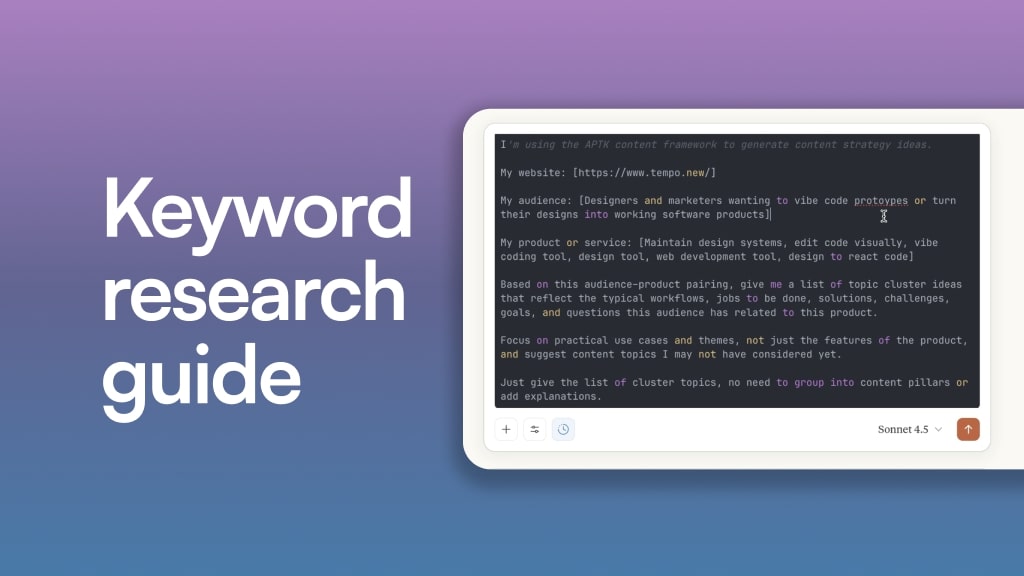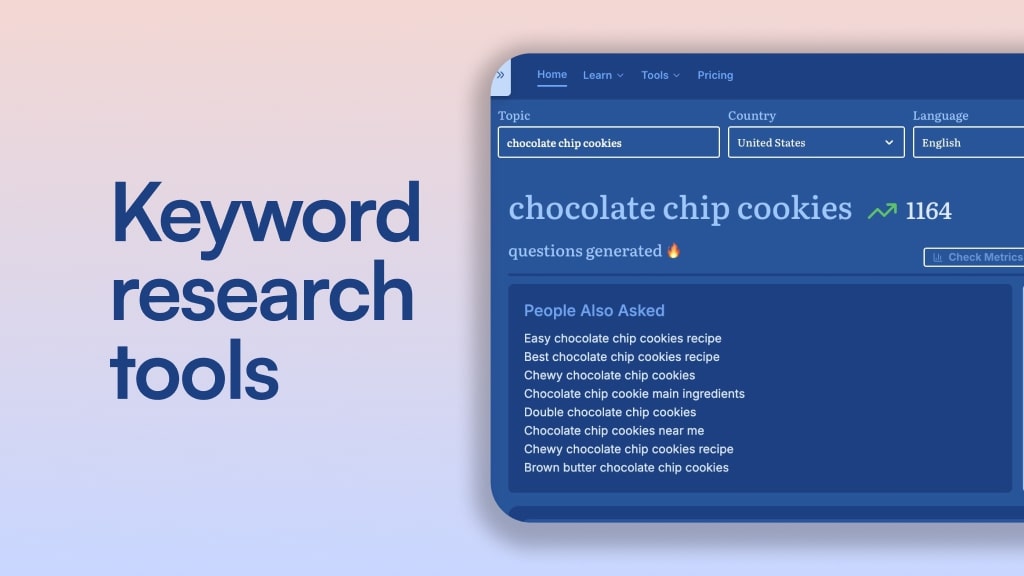Last week, I went to the Ahrefs Evolve SEO conference in San Diego, CA.
It was the first SEO conference I ever went to.
After seeing my site (the one you're currently reading on) become the #1 trending website in Google in the category of "SEO", I thought it was time to go outside and interact with SEOs and digital marketing professionals in the wild.
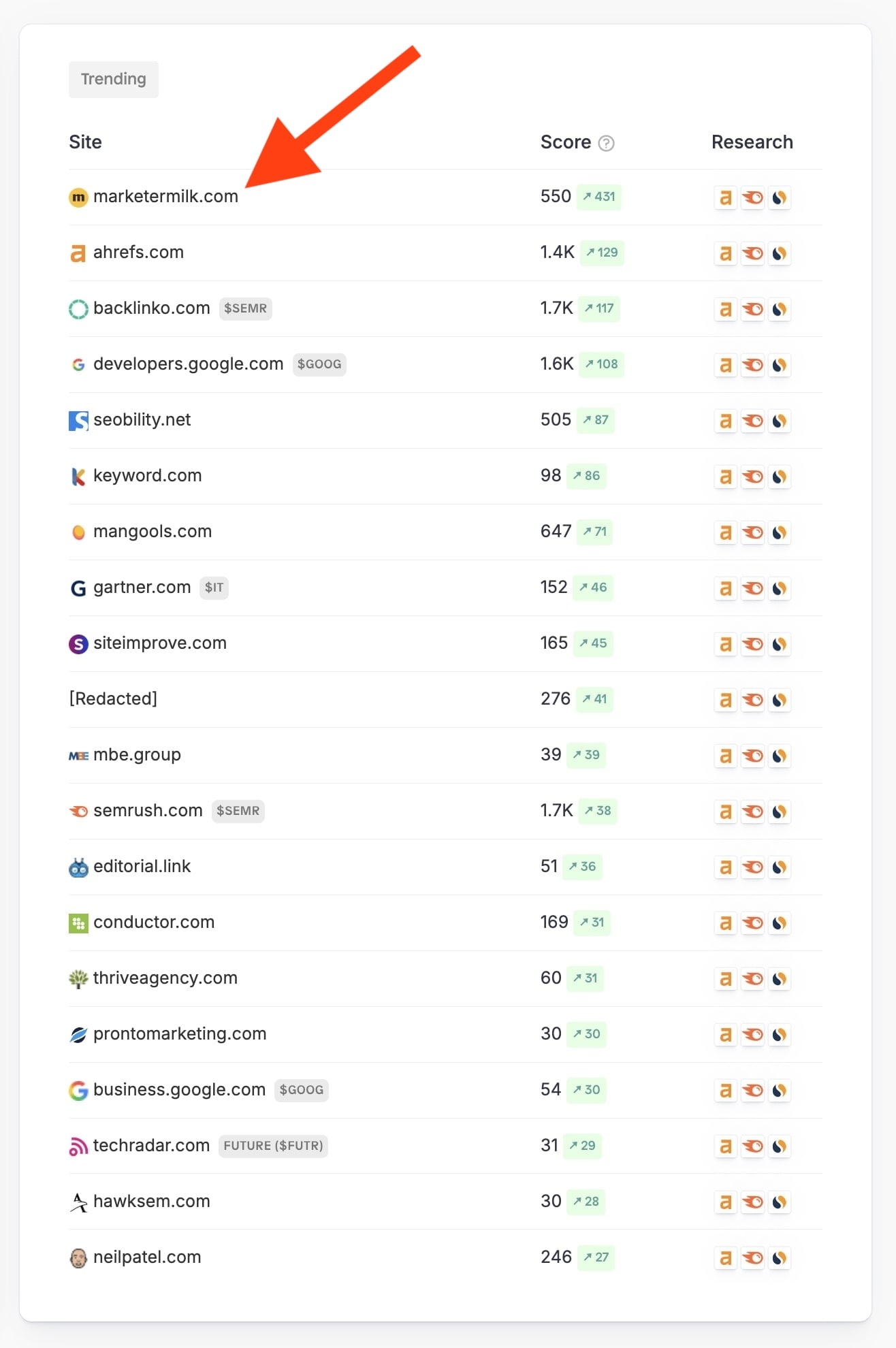
After the conference, I came to the conclusion that most marketers are confused about what SEO is, how it works, and where it's headed. So I put together what I believe are the latest SEO trends based on everything I learned.
I took my decade long career in search engine optimization, all the observations I'm seeing right now, and all the conversations I had with real people in the SEO industry, and created my own SEO trends list for 2026.
So this is that article.
I have nothing to sell you, and this is not sponsored by an agency or AI company trying to influence you in a certain direction. That’s not what Marketer Milk stands for.
This is everything I’m seeing, and my own predictions, on how to win at SEO in 2026.
Let’s get into it.
Is SEO still relevant in 2026?
Yes, SEO is still very much alive in 2026. And on top of that, keywords are still a thing. And so are backlinks. And so is technical SEO. And so is on-page SEO. And so is… okay you get the point.
Nothing has changed. I have not changed my own approach to SEO since 2019. The fundamentals like keyword research still matter.(Even though I started in 2016, I didn’t understand what I was actually doing until 3 years later.)
What has changed is the sentiment around SEO. People are now calling it Search Everywhere Optimization. And I think if you thought about SEO as some sort of hacky way to manipulate search rankings, then yes this is new.
But if you (like myself) think about SEO from first principles and realize that it's all about understanding search intent and demand (what people are searching) and trying to match it with the best source of supply (content), then nothing has changed.
Yes, we now have AI Overviews instead of featured snippets. Google’s AI Mode is a thing. And AI search engines like ChatGPT and Perplexity are a new source of organic search distribution. These are major SEO developments, but they don't change the fundamentals.
But the SEO strategy required to win, the (right) content creation processes, and the traditional white hat SEO best practices still matter.
There is however, one thing I think is shifting. It’s nothing new that we haven’t seen before, but I think the pendulum is swinging.
In fact, most of the 2026 SEO trends we are going to go over embody this shift (with the exception of trends 2, 6, and 8). If you don’t catch what this is while you read, I’ll make sure to say it in plain english in the conclusion.
If you want to watch, I made a video about my top trends here:
Otherwise, for my readers, let’s go over the top SEO trends for 2026.
8 SEO trends for 2026
Here are the SEO trends I’m seeing in 2026:
- EEAT becomes most important ranking factor
- The rise of branded search tactics
- Clickbait title tags with pronouns
- The rise of YouTube for traditional SEO
- People see through the facade of AI search
- The rise of black hat LLM SEO tactics
- Human content outranks AI generated content
- AI SEO companies struggle to re-sign contracts
Let me explain the rational behind each one.
1. EEAT becomes most important ranking factor
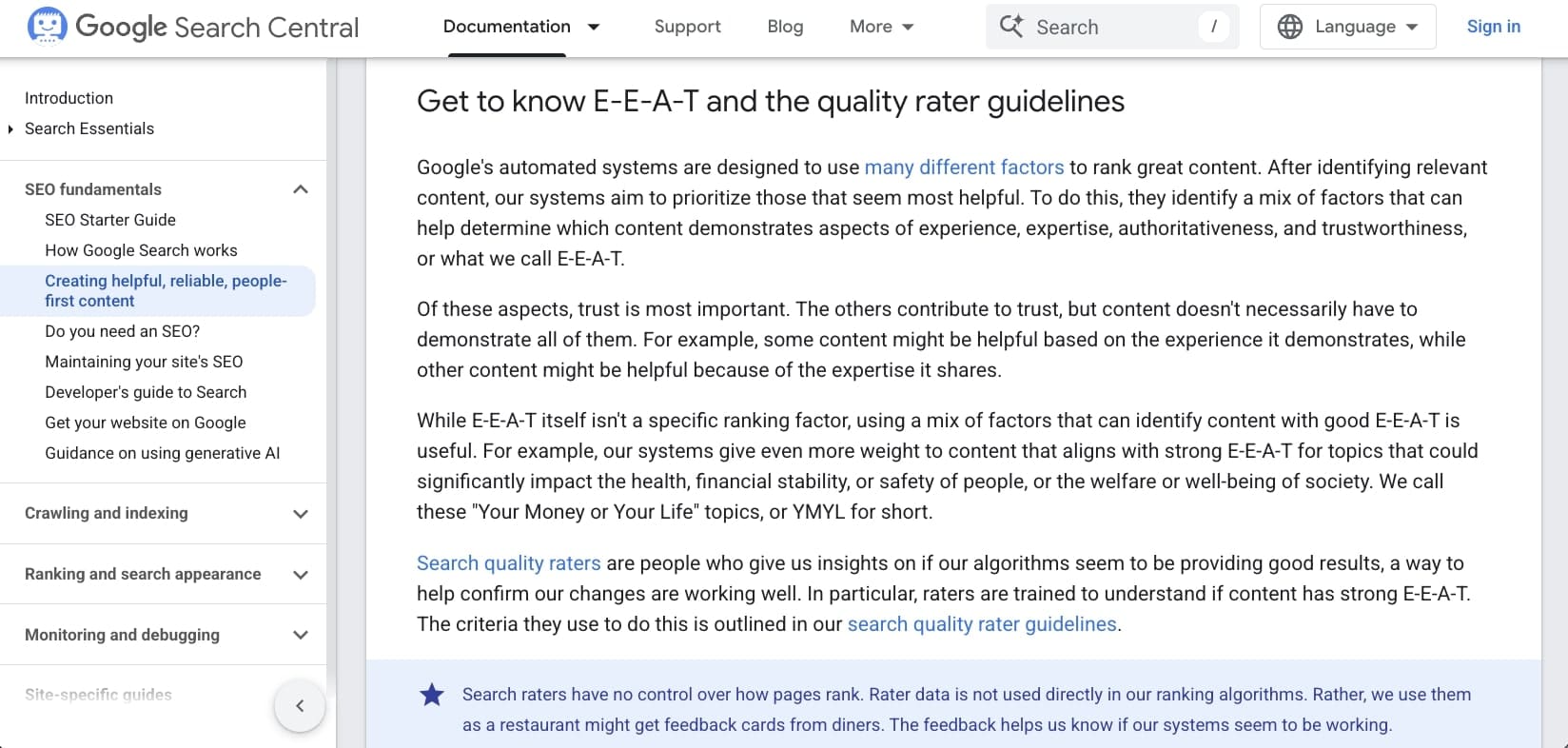
- What to do with this trend: Build your brand’s social proof. Go on podcasts, do interviews, build your reviews on third-party websites, grow your mentions. The websites that win in 2026 are ones that have a strong brand that has social credibility.
If you remember in the introduction of this article, I showed how this blog has grown to be one of the biggest blogs online talking about SEO.
I truly believe this happened because my brand has really strong EEAT (Experience, Expertise, Authoritativeness, Trustworthiness).
You can check out Google’s guidelines on how EEAT works. But what it is at it’s core is how trustworthy your brand is and how helpful your content actually is.
I've noticed this shift in Google the past year, especially with the June Core Update halfway through 2025. These Google SEO trends are reshaping how we should think about rankings.
Google is rewarding smaller blogs written by people with real lived experience, over faceless corporate blogs. This is especially true in competitive spaces like SaaS SEO.
I believe it’s Google’s way to combat all the AI generated content appearing in the search results.
But how does EEAT work and how do you develop it? Understanding this is core to how to do SEO in 2026.
To me, it’s just your brand. It’s more than just what you say about yourself on your website. I could create a marketing blog and say how I am the best marketer in the world (I’m not) and how everyone should listen to me.
While that is important, what’s weighed more heavily is what others say about you (and if it confirms what you say about yourself).
EEAT is social proof.
Are you more likely to buy a product if the company says it's a good product or if your friend tells you it's a good product? Your friend, of course.
Search engine algorithms need a way to figure out which websites are trustworthy enough to rank high. And historically this has been done through backlinks. While still important, it’s only one part of the equation.
You need case studies about you on other websites, people saying positive things on social media, and proof that others say you are an expert on something.
In my opinion, this will be the strongest ranking factor moving forward. We’ll see more smaller bloggers with solid social proof start to outrank larger corporations that have lost their soul and personal touch in the name of increasing shareholder value.
2. The rise of branded search tactics
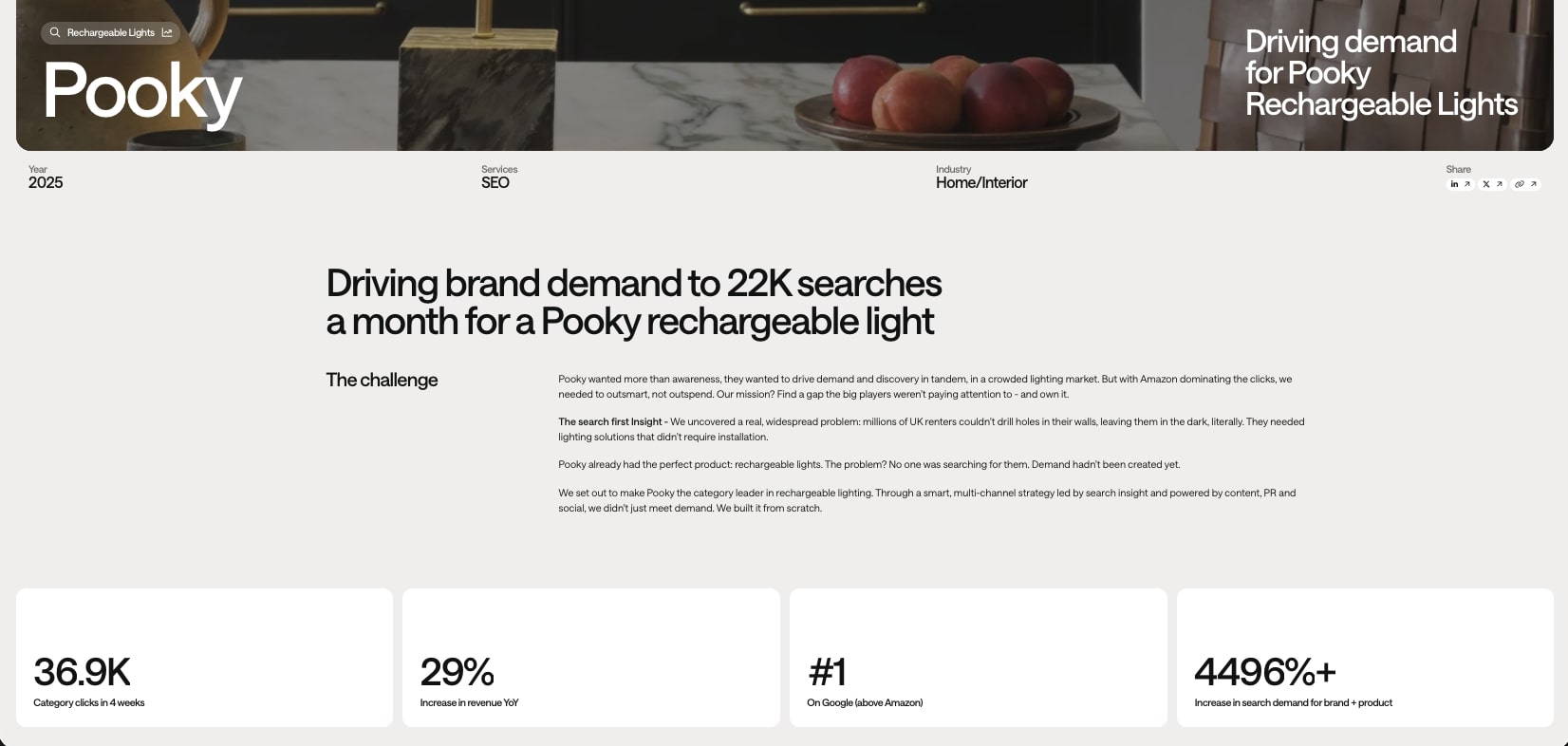
- What to do with this trend: Find ways to grow branded searches that include your target keywords. Use social media content, influencer partnerships, or PR to get people searching for "{your brand name} + {target keyword}" in Google. This association signals to Google that your brand owns that topic.
Most SEOs focus on growing a website’s non-branded search traffic. And while I 100% agree this is where we can show our value and drive real organic growth, I don’t think it’s an excuse to dismiss branded searches all together.
In fact, I have noticed that when a website’s branded search volume starts to increase, it creates a “tide that lifts all boats” for all keywords a site ranks for.
So in 2026, I predict that marketers will start to find ways to manufacture word of mouth to grow their branded search volume.
One amazing example of this is when Rise at Seven (an SEO agency) helped Pooky (an ecommerce brand) rank #1 for “Rechargeable lights”. You can read about it here, but let me explain what they did.
Pooky, a company that sells lamps, wanted to rank for “Rechargeable lights.” But it was super competitive. So the agency Rise at Seven helped them by growing the search volume for “pooky rechargeable lights” through a bunch of UGC social media content.
When people heard about Pooky’s rechargeable lights through sponsored videos on TikTok, they went to Google to look for it. Because so many people searched for the Pooky brand name, along with the keyword “rechargeable lights”, Google started to associate “rechargeable lights” with the brand Pooky.
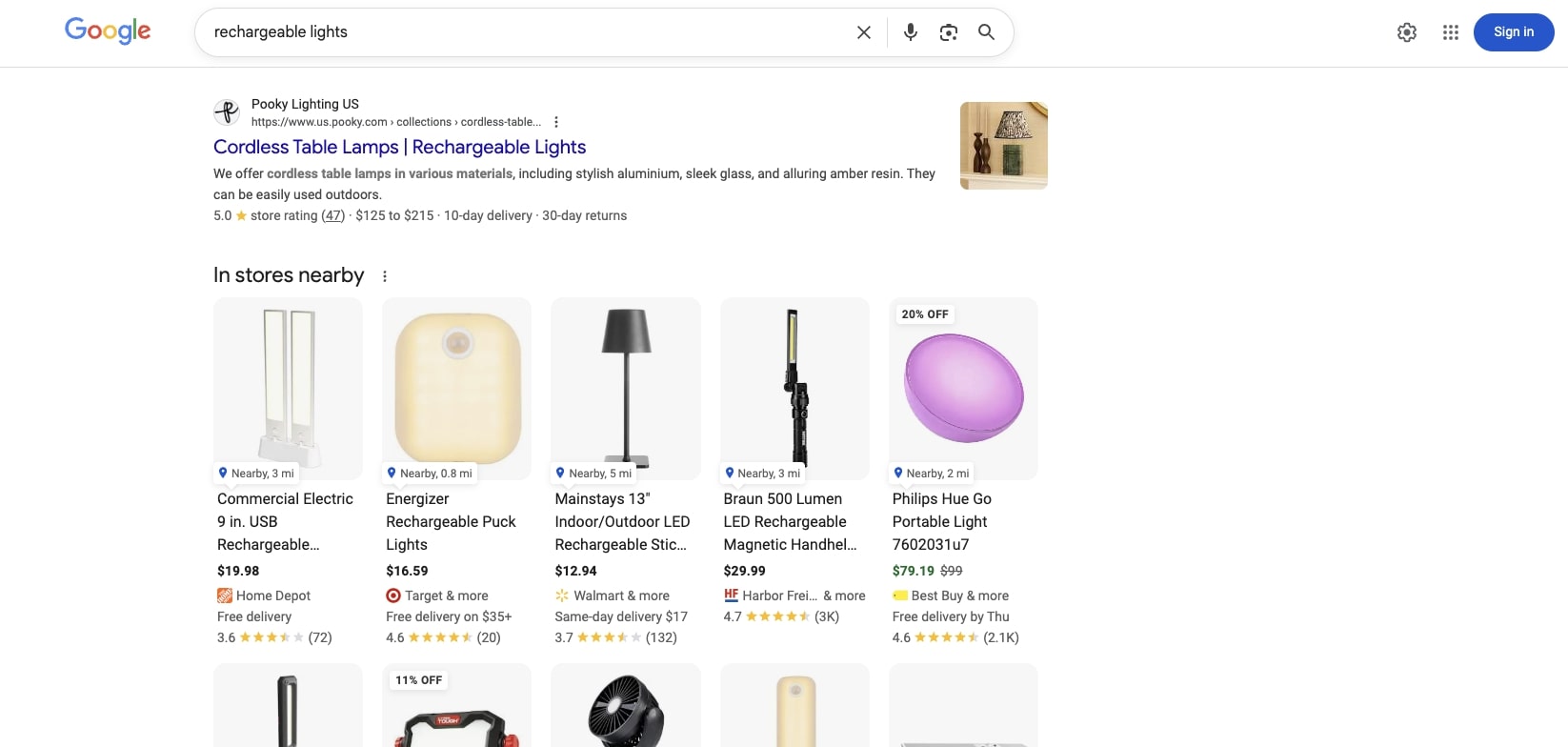
Essentially, getting people to search for "{your brand name} + {non-branded keyword} got the website to rank #1 for the non-branded keyword. This is a powerful way to increase search visibility.
So if you’re trying to rank for that super valuable keyword, find ways to get people to search your brand name with that valuable keyword.
3. Clickbait title tags with pronouns
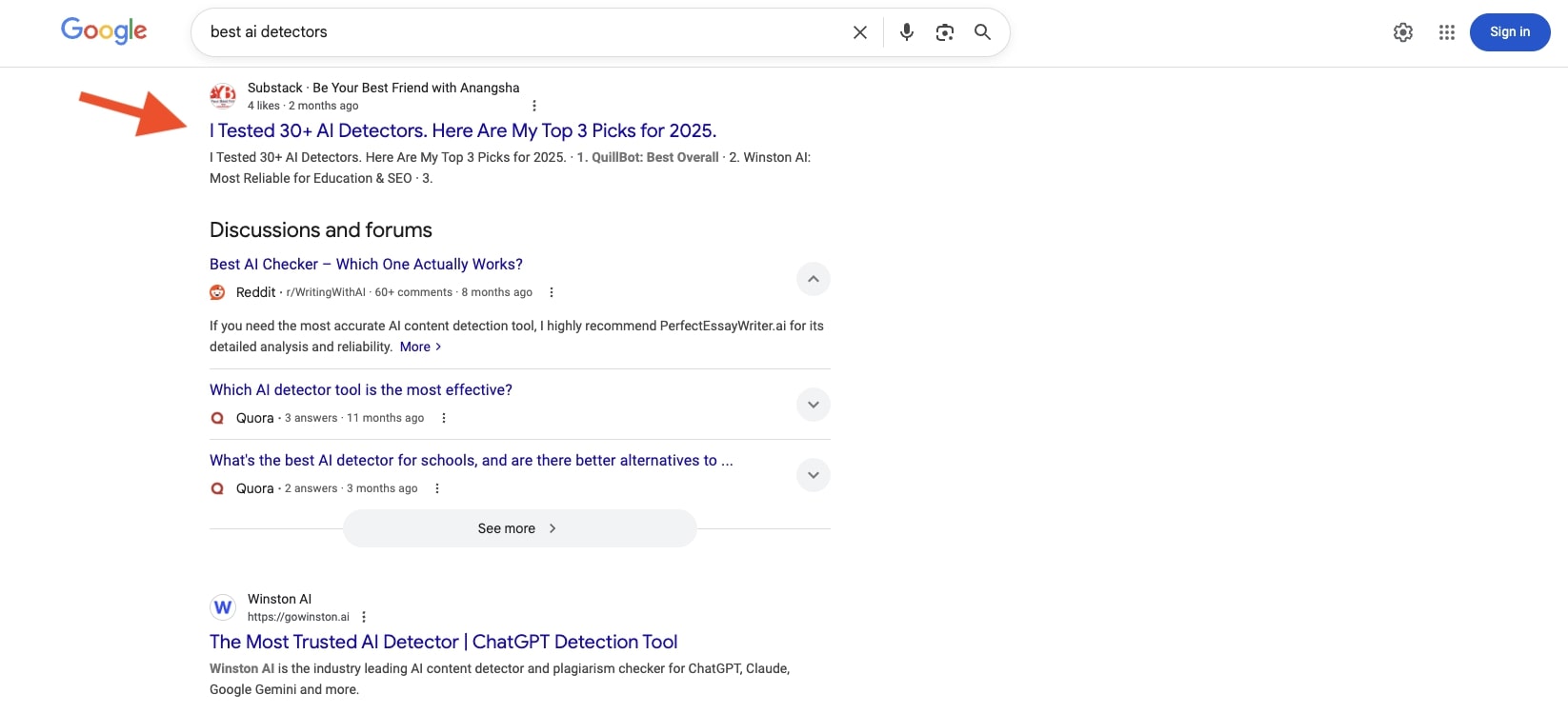
- What to do with this trend: Rewrite your title tags to include first-person pronouns and emotional hooks that increase CTR. Show personality and make promises you can actually deliver on in the content. Think "I tested 10 tools for 6 months" instead of "10 Best Tools in 2026."
One of the biggest SEO content trends I'm seeing in 2026 is the use of personal title tags. Google is starting to become more like YouTube.
YouTube is all about having a great idea, title, and thumbnail — in that order. And while Google operates a bit more differently in that it’s more of a search engine than discoverability platform, I see more “clickbait” titles showing up on the first page compared to traditional “SEO optimized” titles.
And let me preface that when I say “clickbait” I don’t mean fooling people. Clickbait can be done right, and work well when you actually deliver on your promise.
The goal is to increase your CTR (click through rate) by envoking an emotion, and using first and second person pronouns to add personality (to help boost CTR).
Let me explain this through an example:
- Old SEO optimized title: 10 Best Adjustable Dumbbells to Buy in 2026
- The new way: Tested By Fitness Experts: 10 Best Adjustable Dumbbells (2026)
- Old SEO optimized title: WordPress Review 2026: Is This Platform Good?
- The new way: An Honest WordPress Review (My Pros & Cons After 2 Years)
As you can see, the new way involves more personality and goes against some of the previous best practices for title tags.
For example, I have an article that ranks strong for “SEO tools”. And my title is “24 best SEO tools I’m using (free + paid)”. The title says it’s the tools I personally used. And then when you read the article, you can see I am 100% telling the truth.
Where this doesn’t work, and is considered bad clickbait, is when you don’t deliver on this promise. I’ve seen companies say things like “10 best tools we tested” but the reality is they never tested all of them, and you can tell when you read the article.
Doing that will hurt your EEAT and if someone comes and targets the same keyword and is able to actually deliver on their high CTR title tag, they will outrank you.
4. The rise of YouTube for traditional SEO
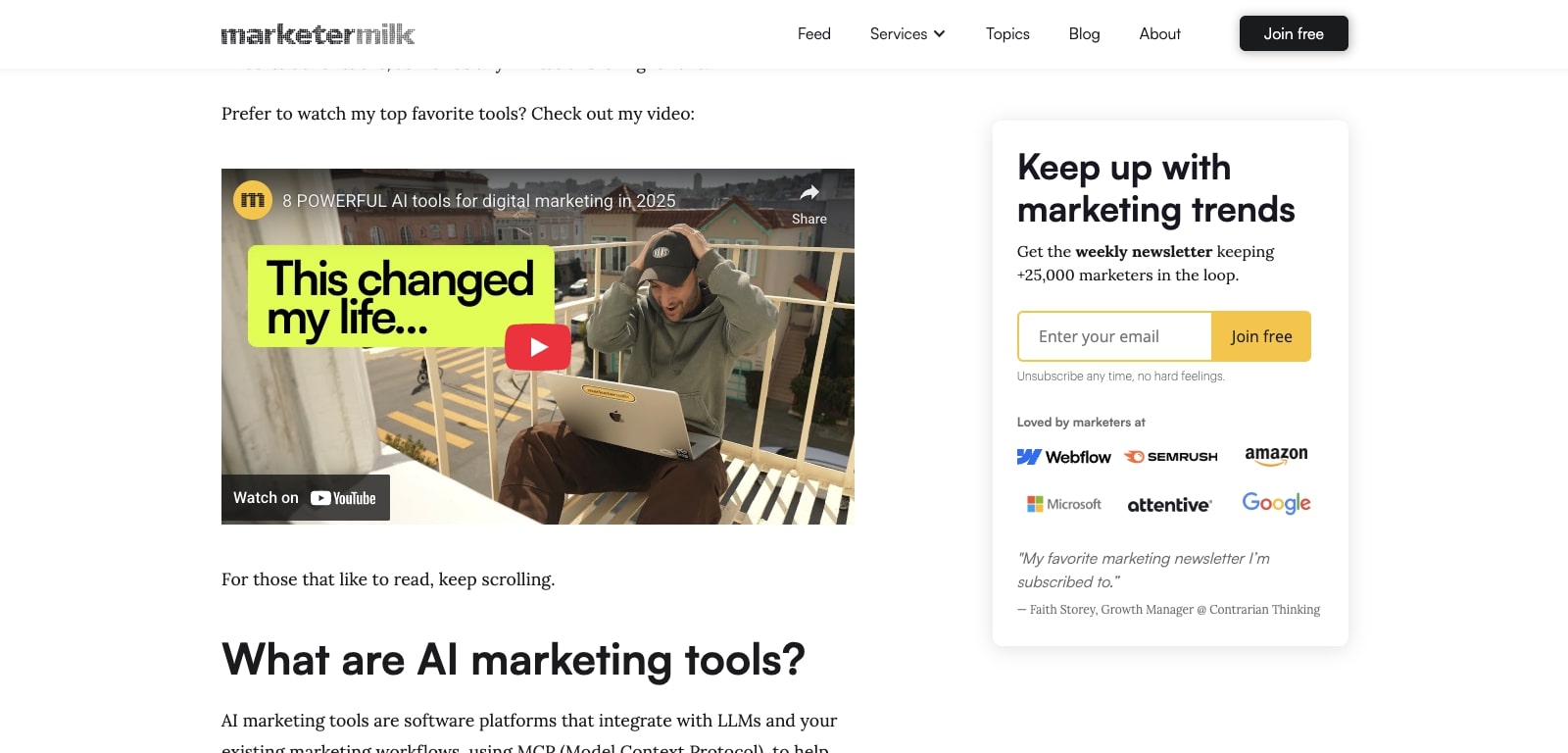
- What to do with this trend: Create YouTube videos for your best-performing blog posts and embed them directly into those articles. Use video to build trust and authority, which will help your written content rank better and convert more visitors once they land on your site.
AI search and LLMs are freaking marketers out. Especially CMOs and those responsible for a company’s marketing success. AI-generated answers seem like a direct threat to the traditional organic traffic websites used to get from search engines.
Before, you had to click on a website to see the results. Today, LLMs just rip the content on websites and people no longer need to visit a website anymore. According to the Pew Research Center, people are less likely to click on a link when they see AI summaries.
While I personally think this threat is blown completely out of proportion (based on data from sites I’ve personally seen), I don’t think it’s an excuse to ignore it completely.
From my own experience growing both blogs and YouTube channels, especially to sell something, I can tell you that video converts way more than written content. With video, you can build more trust. And the viewer can pick up on more subtleties in your message.
It’s a lot easier to tell if someone is lying or full of it if you can see their facial expressions and their tone of voice.
So YouTube should definitely be in your SEO and content strategy. Use video as demand generation and a way to build trust with an audience. Then, when they go to Google to search stuff related to your products or services, also be in the SERPs so they can have more touch points with your brand.
And because you have built the trust with video, your traditional SEO efforts will convert better.
But there’s even more to it.
Earlier this year, I had a hunch that if I turned some of my best ranking blog posts into YouTube videos, and embedded them into my existing blog posts, my blog posts would rank even better.
And it turned out to be true.
I used rank between 2-3 for the keyword “AI marketing tools.” I made a YouTube video about the topic, embedded it into that blog post, and I’ve been ranking #1 since.
So in 2026, think of YouTube videos as a way to beef up your SEO blog posts to rank even better.
5. People see through the facade of AI search
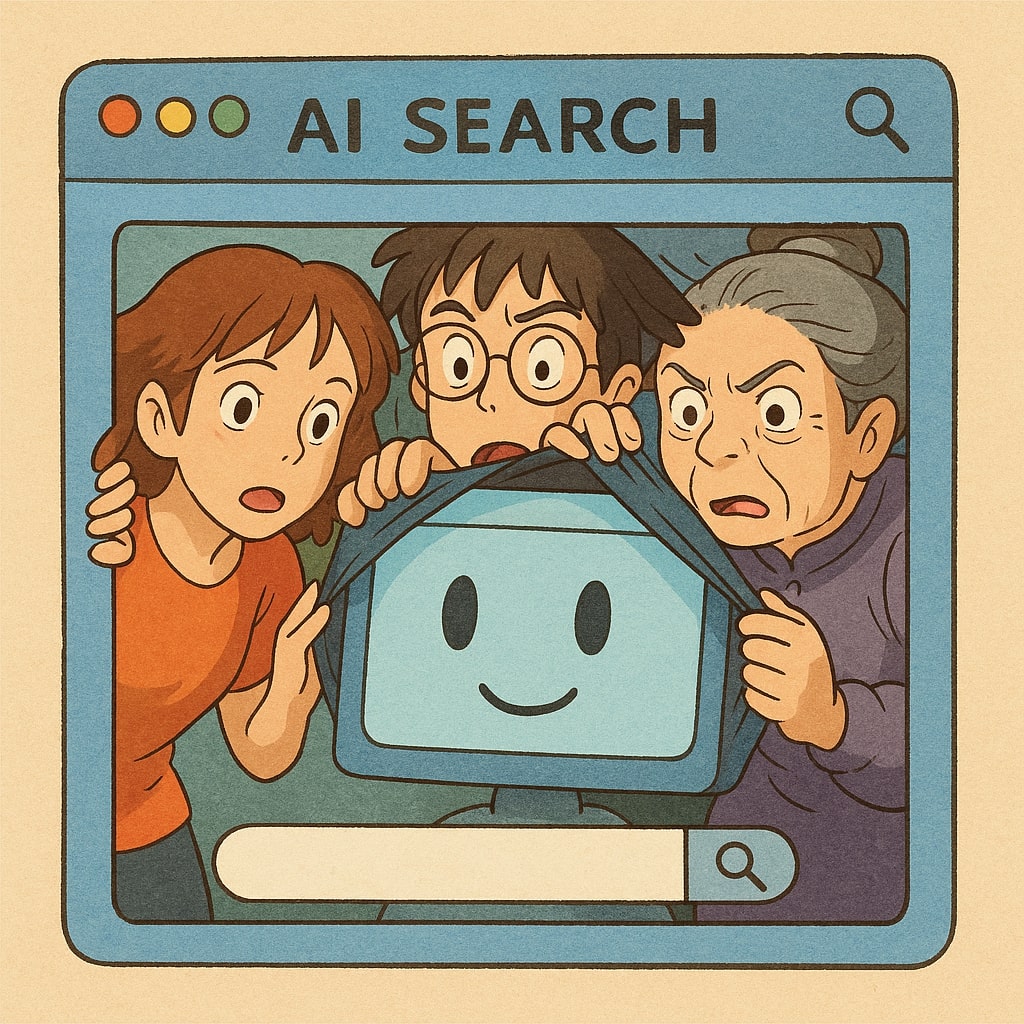
- What to do with this trend: Don't panic and shift your entire SEO strategy to optimize for ChatGPT or other AI search tools. Keep focusing on Google, which still owns 90% of search market share. Invest in AI search experiments if you have budget, but don't abandon what's actually driving traffic and conversions today.
In 2025, we saw everyone talking about how AI search was going to take over Google. Beyond just SEO, the marketing community as a whole started to get bombarded with influencers trying to ride the AI hype train.
As a result, we all became confused on what was true about AI’s impact (and what wasn’t). It became hard to find trusted sources that weren’t biased or had a hidden agenda to sell us something.
While I do believe there are benefits to using LLMs in our workflows, I do think it has been overhyped. And in 2026, I predict many marketers will realize that ChatGPT and Perplexity are just a small part of the SEO market. If you want to learn more about LLM SEO, I wrote a full guide on the topic.
Google still dominates 90% market share and with its AI Mode and AI Overviews, it's in the perfect position to win the AI search engine race. Search behavior hasn't fundamentally shifted away from Google.
Beyond just that, there are a few things that have rubbed me the wrong way about the AI SEO trend.
First, there are many marketers saying that traffic from ChatGPT converts higher than traffic from Google. Some claim ChatGPT has a 16% conversation rate and is better by more than 2X compared to Google.
But what these marketers don’t realize is that ChatGPT gives sources when you’re searching for things in the middle or bottom of funnel. Things like homepages, pricing pages, or bottom of funnel content, tends to be shown in ChatGPT. The informational top of funnel content is “eaten up” by LLMs and shown to users without anywhere to click.
So what is really happening is the conversion rate from ChatGPT is the conversion rate of your middle/bottom of funnel content. If you were to take that same concept over to Google, you would see the same conversion rates. Google's conversion rates show less because the traffic is higher due to it being diluted by all the top of funnel content that is in the equation.
Other things like how ChatGPT can make stuff up, it never fully follows prompts correctly (i.e. “you are an expert in {insert topic}” is not real), and Google blocking the ‘& num=100’ parameter from their search results all start to lower the quality of its results.
I do still believe that larger companies will set aside an experimental budget to test things like ChatGPT apps and other AI SEO tools. But in 2026, I predict people will realize optimizing for Google will allow them to show up in ChatGPT and Perplexity as well. Just look at ChatGPT Atlas or Perplexity's Comet browsers. They are both built on Chromium — a framework created by Google.
6. The rise of black hat LLM SEO tactics

- What to do with this trend: Don't do it. These tactics might work now in ChatGPT and other LLMs, but they're short-term plays that will eventually get penalized. Focus on white hat strategies that build real authority and trust over time instead of chasing quick wins that won't last.
The 2000s are back. Scammy keyword stuffing tactics, paying for low-quality backlinks, shipping thousands of useless articles — all in the name of ranking high.
This used to work in Google. But now, the algorithm is mature enough to ignore all that nonsense. However, ChatGPT and other LLM algorithms are not as mature yet.
I can’t name this person, but I met an SEO director at a huge banking company. This person told me they (and all their competitors) are creating microsites (like small blogs) on different domains. Then they are shipping 500-800 word generative AI blog posts, with structured data, schema, faqs, and all the extra technical SEO tactics. And from there, they are using their main company domain, that has an extremely strong brand authority, and sending backlinks to the microsite.
And this has resulted in higher rankings for their brand in LLMs like ChatGPT.
It blew my mind that huge, reputable companies are doing this. And I realized how much black hat (or grey hat) tactics are going on behind the scenes. Not just by a dude in his moms basement hacking away, but by multi-billion dollar corporations.
In 2026, I predict these tactics will continue to happen. Until ChatGPT’s algorithm gets as smart as Google’s search algorithm. But that seems like a long time from now.
Anyways, I personally would not recommend engaging in this. It’s short term thinking and your energy is best spent on white hat marketing strategies that can stand the test of time and improve your sites trust signals over time.
7. Human content outranks AI generated content
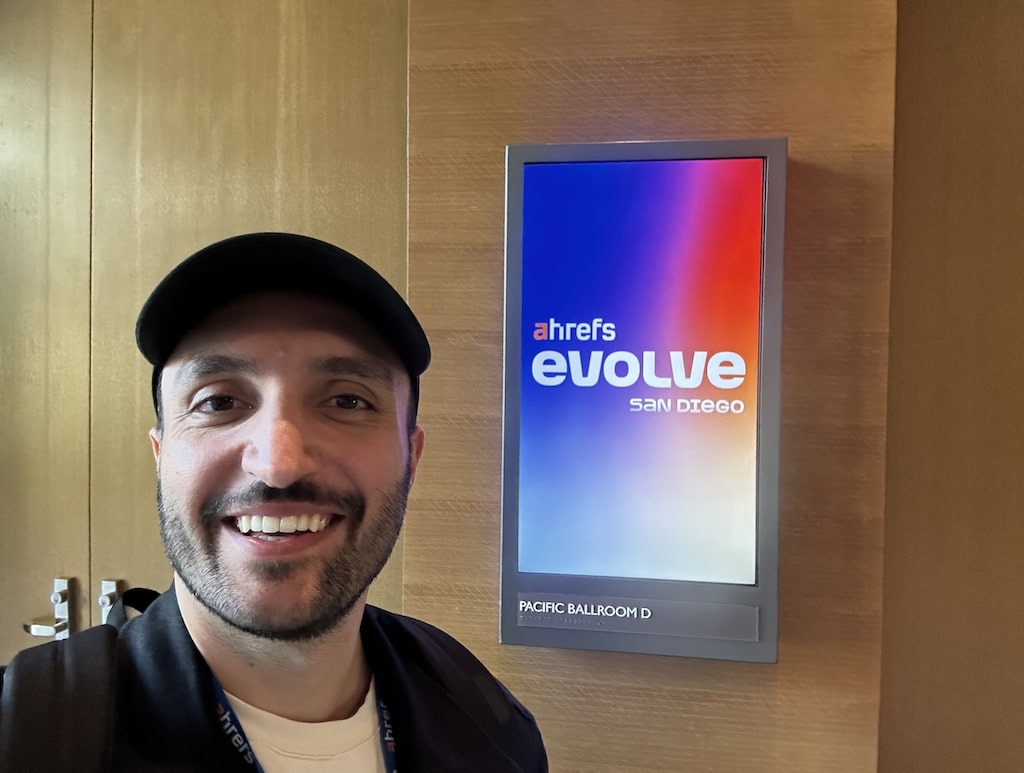
- What to do with this trend: Write from lived experience and create original content that AI can't replicate. Focus on quality over quantity. Share real insights, use your own images and videos, and build topical authority in your niche. This is how solo creators and small teams can beat huge brands in 2026.
Niche blogging is back baby. But with a twist. This is one of the biggest SEO trends for content marketing I'm seeing right now.
Right now is the best time for a solo creator, who’s down to write 100% original content from lived experience, to outrank all of the big brands.
BUT, you can't just have a blog where the whole business model is just... a blog. That has died.
You need a real business, be it a newsletter business, a service-based business, SaaS company, or ecommerce store. And then you add on this human-centered niche blogging to the site to organically grow your core product/service offering.
In 2026, I predict that Google's algorithm will continue to get smarter about which web pages contain AI content and which don't.
And I’m not saying that they won’t rank AI content at all.
In fact, I know tons of people quietly crushing it with AI generated content (even going after top of funnel keywords). But what I am saying is that engaging, human content will outrank AI generated content with no original insights.
There are two routes I see with SEO’s right now:
- Produce thousands of AI-generated blog posts and get them to rank in the middle/bottom of page 1. Quantity over quality.
- Produce a hundred human blog posts and get them to rank at the top of the first page. Quality over quantity.
The first route is based on sheer volume, and can lead to traffic growth. But you do risk a potential algorithm update hurting your rankings. And anyone who writes better human content will rank higher in positions 1-3.
The second route is slower, but can yield higher ranking positions and more trust with readers.
The first route is for the impatient corporations.
The second route is for solo creators or startups that want to do things right.
And I know I sound biased for route 2. It’s because I am. I’ve seen it work with my own blog. And I’ve also seen it with other smaller creators in the business space.
For example, my friend Victoria (an SEO who I deeply respect) is a great example. She’s outranking so many huge brands that they are now knocking on her door to collab. It happens with me too.
Alex and Andra from Efficient App, are also an example of this. They are ranking #1 for the word “browsers” and outrank Zapier, Reddit, Wikipedia, and a ton more huge companies.
But these are just a few SEO examples. There are so many people out there winning at SEO simply because they are looking at things from a different lens. A lens that goes beyond what SEO professionals at large corporations are looking through.
I wrote all about what that lens is on my friend’s company blog. You can check it out here.
But regardless, all of this ties into the first trend we went over — EEAT. Write from lived experience, create original media in the form of images and YouTube videos, and build up your topical authority.
Doing so is how you win at SEO in 2026. And build a brand people trust and want to do business with.
8. AI SEO companies struggle to re-sign contracts
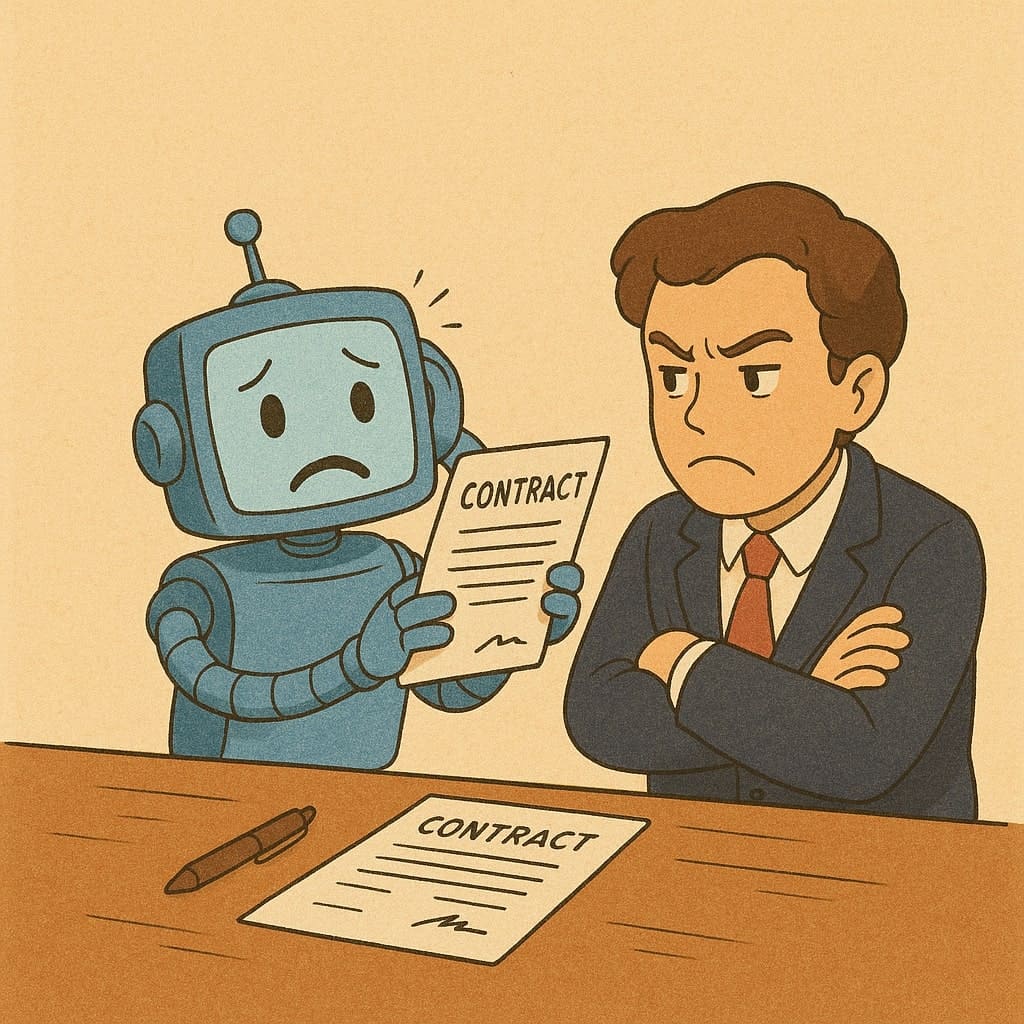
- What to do with this trend: Enterprise companies that spent big on AI SEO tools in 2024-2025 are realizing the ROI wasn't there. Expect to see a shift in 2026 where decision makers get more skeptical about AI promises and start demanding proof of results before committing to renewals.
There are so many AI-powered tools out there, and a lot of them have been targeting SEOs. AI article writers, AI prompt trackers, SEO automation tools promising to grow your SEO traffic in a few clicks.
What I’ve come to realize is that there’s more perceived value over actual value in AI right now. And I know I’m not the only one who’s thinking this way.
I met the SEO Lead of a huge enterprise financial company (every American would know the name of the company). This person told me that they have a 7 figure (not going to reveal the actual number) annual SEO budget. And that budget needs to get spent no matter what.
So this person tried to find ways to spend the money, and what better way than all these new AI tools. So this person paid almost 6 figures for an AI tracking tool.
When I asked what happened and if it was worth it, this person just shrugged their shoulders and said “mehh.”
This tells me many companies are selling air simply because they can.
In 2026, I predict it will get harder for these enterprise AI SEO tools and agencies that produce “programmatic” content to re-sign their contracts. And as a result, these companies will pivot their messaging to fit whatever the next trends are.
It happens all the time, in every industry, and every professional field outside of just SEO. New shinny technology comes out, people go crazy and sell shovels like hotcakes, time proves there’s a lot of fake gold, hype around technology dies. Repeat.
To be clear, I’m not saying AI will die or a bubble will burst. I can’t predict that. But what I am saying is that key decision makers at companies will get smarter and the sentiment around using AI for SEO will start to change.
There's a difference between feeling more productive and hitting metrics that drive actual business value like more revenue.
The big SEO opportunity ahead
In a fast-paced AI world, SEO is… ahh got ya! You started reading that and thought to yourself, “another AI slop article.”
This is exactly what is wrong with SEO and marketing right now. We are tired of all these “AI-driven” tools, fear mongering about being left behind, and AI slop contributing to the dead internet theory.
And let me caveat by saying to not fear for AI to take your job. AI will not cause layoffs directly. AI will be the excuse companies make to layoff underperforming team members. It happens every time. Some big event occurs, companies use it as an excuse to slim down their operations after over-hiring during “good” times.
What you should focus on in your career is getting better at connecting with others.
People are craving REAL connection. We want to be seen, understood, valued, and inspired. That's what great user experience is all about. (This is what I said is the biggest theme from the introduction of this post.)
If 2024-2025 was the year of AI, 2026 will be the year things start to shift towards the human. People are fed up with all the BS being posted online.
Gen Z and Gen Alpha grew up with dopamine machines. It’s no wonder the younger generation feels lost and depressed. We let corporations exploit our attention for ad dollars and, as my 10 year old nephew would say, we have “brainrot.”
The younger generation is smart. They can spot AI and fakeness from a mile away. They want real stuff. And this creates the perfect environment for a big SEO opportunity ahead.
For the first time, human created work stands out from most of the work out there. Can you believe it?!
I truly believe, down to my core, that if you’re willing to put care into your work. The type of care where you think more about serving your readers (or viewers) more than you do yourself, you will win in the long term.
I hope I can be an example of this, and help others find their way too. That’s what my blog has always been about. Yes, it’s about talking about my passion — marketing. But it’s more about showing that you can build a fulfulling business, on your own, as long as you think long term and care about people.
Posting an AI generated blog post in not care. Using a LinkedIn automation tool to leave AI comments to grow your online presence is not care. Telling people to use a product you don’t even use because you’re being paid lots of money for it is not care.
These are downright disrespectful.
So if there's one take away from all of this, be for the people. But also, pay attention to how search engines crawl, index and rank content. If you want to sharpen your skills, check out these SEO courses I recommend.
These are the SEO strategies for 2026, that combined, will actually work.
Get the weekly newsletter keeping +33,000 marketers in the loop.













